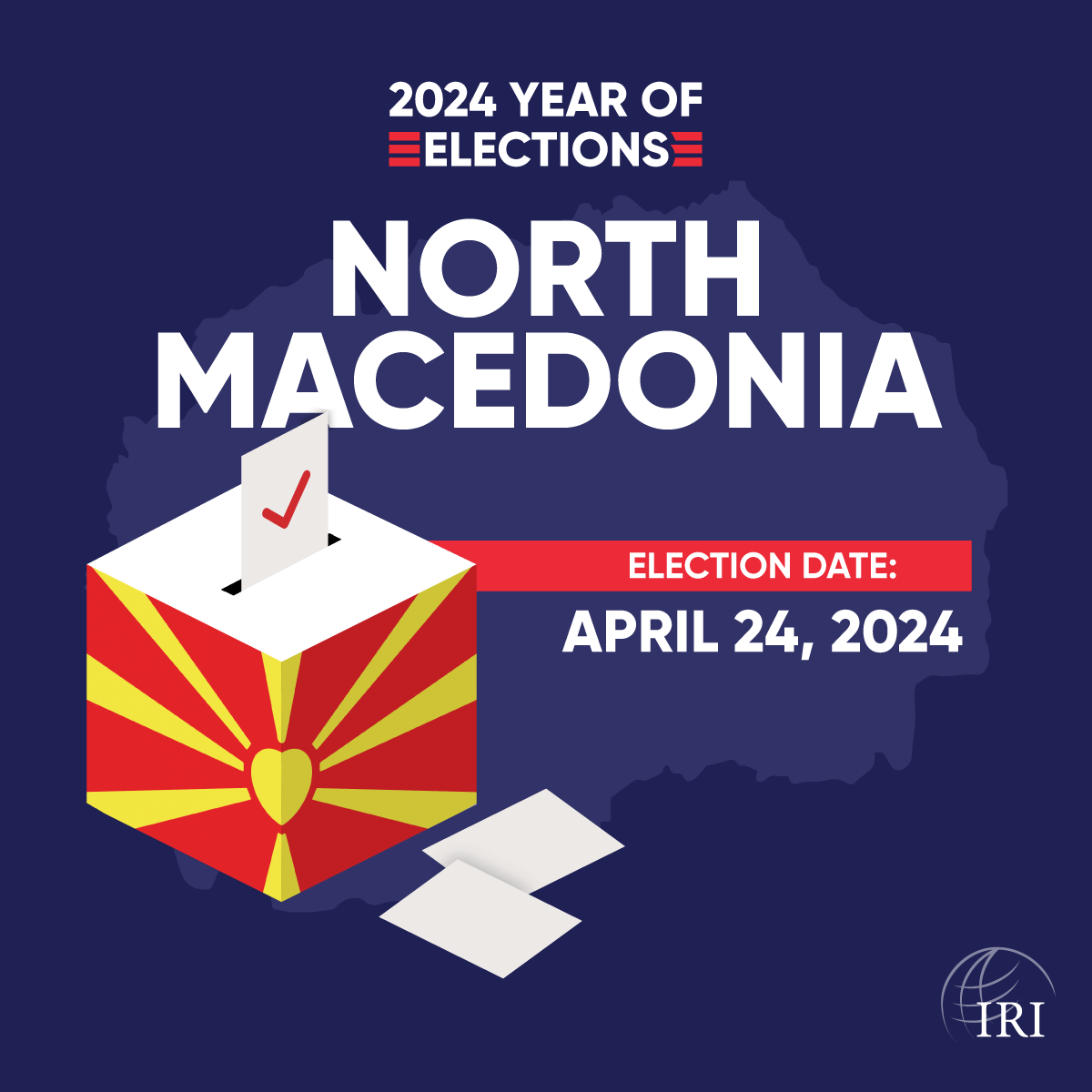
4 things you need to know about the election
On April 24 and May 8 citizens of North Macedonia will head to the polls for the first, and for the second round of presidential elections which will be held along with the parliamentary elections.
In the presidential elections, incumbent Stevo Pendarovski supported by the coalition led by the governing Social Democratic Union of Macedonia (SDSM), is facing six rivals in the first round. The opposition-led coalition by VMRO-Democratic Party for Macedonian National Unity (DPMNE) has nominated Member of Parliament Gordana Siljanovska – Davkova, who also faced Pendarovski in 2019. Minister of Foreign Affairs Bujar Osmani is nominated by the ethnic Albanian governing coalition partner Democratic Union for Integration (DUI), along with other smaller ethnic parties.
Three mayors have also engaged in this national race: Mayor of Kumanovo Maksim Dimitrievski, leader of newly-formed party For Our Macedonia – ZNAM (“I Know”); Gostivar Mayor and leader of, now-divided party Alliance for Albanians (AfA), Arben Taravari supported by coalition of Albanian opposition parties; and Mayor of Karposh, a Skopje-based municipality Stevco Jakimovski, leader of Citizens Option for Macedonia (GROM), who was publicly designated by the U.S. Department of State due to involvement in corruption. The second woman candidate in the presidential race is Biljana Vankovska – Cvetkovska supported by anti-NATO, anti-EU party Levica (Left).
In the parliamentary elections, 17 coalitions and parties are running, though the seven key competitors expected to win parliamentary seats mirror the presidential elections ballot: “Coalition for European Future” led by Social Democratic Union of Macedonia and until recently Prime Minister Dimitar Kovachevski, “Your Macedonia” led by VMRO-DPMNE and its president Hristijan Mickoski, “Brave for Macedonia” led by GROM and Stevco Jakimovski, “European Front” led by DUI and its leader Ali Ahmeti, “It’s Worth It” composed of the wing of AfA led by Arben Taravari, Movement BESA and its president Billal Kasami, Alternative and its president Afrim Gashi, as well as members of Vetvendosje party from Kosovo; “For Our Macedonia – ZNAM” led by Maksim Dimitrievski and Levica led by Dimitar Apasiev.
What are the issues?
Continuity, versus change, is at stake in both the presidential and the parliamentary elections. The economy and standard of living, the fight against corruption, good governance, and better functioning institutions as the most important issues in the campaign. The aim of EU integration is emphasized as a priority by almost all, but they differ in how they want to accomplish this.
Presidential elections need to reach a 40 percent turnout threshold to be successful, which is why presidential elections have been scheduled to take place on the same day. While elections in North Macedonia normally take place on a Sunday, due to the Easter holidays and the nearing end of the term of the President, this time they will take place on a Wednesday. Both days of elections have been declared as non-working days.
Why should we care?
North Macedonia’s EU membership accession negotiations should be unlocked after the elections. A NATO member, North Macedonia has been waiting to begin EU membership negotiations for almost 19 years. Blocked for many years on this path, most recently due to conditions placed on the country by Bulgaria, North Macedonia must make constitutional changes to introduce the Bulgarian minority among the other ethnic communities in its constitution to continue EU accession negotiations. The constitutional changes have been stalled in Parliament due to the lack of two-thirds majority support. The opposition parties VMRO-DPMNE (and Levica) object to these constitutional changes saying they were forced on North Macedonia by Bulgaria. VMRO-DPMNE is committed to continuing EU accession talks, but they will address the constitutional changes in a different way, such as possibly delaying enforcement of these changes and only making them effective in parallel with North Macedonia’s full EU membership. Once the constitutional changes are adopted, the country can proceed with EU membership negotiations which are seen by the citizens as the way to have functional institutions.
What can be done?
North Macedonia’s long wait in the EU lobby and the country’s weakening institutions have increased apathy among citizens. At points in the past a leader in EU integration, democracy and transparency, the country keeps experiencing setbacks. If the EU does not take North Macedonia seriously, it risks losing the majority support for EU integration. IRI’s Western Balkans poll conducted in February-March 2024 finds that North Macedonia has the second lowest public support among the six Western Balkan countries for a foreign policy course which is only pro-European Union and the West. Washington should not lose sight and should increase its support for strong institutions and democracy in North Macedonia.
Top